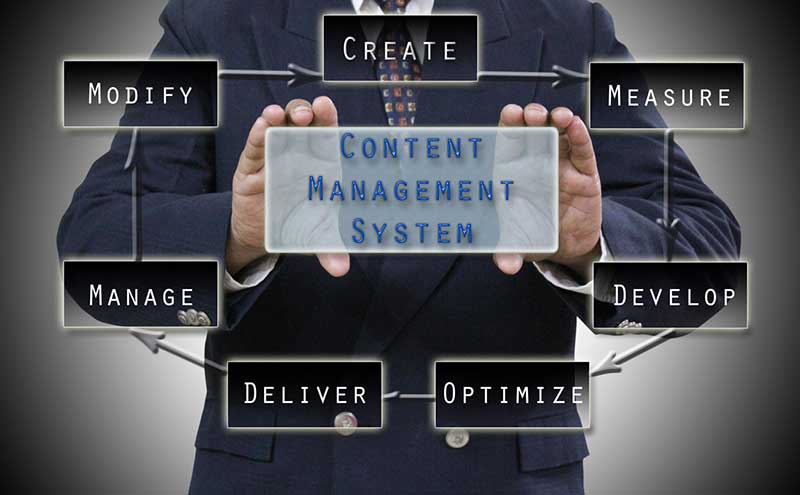Content marketing is a discipline that requires a strategic approach. Just thinking of all the different parts of content management, it’s easy to feel overwhelmed. You’re not alone. To establish content marketing management within an enterprise, you’re going to need to understand the strategy, process, and tools required.
In this overview of content marketing management, we’ll review all that it entails and how to align all the pieces and parts for success. We’ll start with the basics then get down to the granular specifics. Ready?
What is content marketing management?
Content marketing management is the entire process of developing content assets that support owned content properties, from ideation to publication and promotion. As you know, there are so many steps in between. The key to optimizing content marketing is having a central content marketing software platform that enables transparency and allows all parties to collaborate effectively.
If you currently use multiple programs to manage your content then you’re likely losing efficiency and productivity. Instead, command your content operations from one place.
Content Management Process: Define it and Perfect it
Content management includes creating, controlling, optimizing, storing, publishing, measuring, and repurposing. It’s the true lifecycle of content as it moves through your organization. There are several components of a content management process, including:
- Initial development: ideas turn into content projects with consideration for the audience, keywords, themes, and more
- Review: editing, designing, and ensuring the presentation is on target
- Approvals: SMEs, stakeholders, legal, and compliance may be involved
- Publication and disbursement: where will it live and what channels will be used to distribute it?
- Measurement: review of content analytics to understand the content’s ability to attract users, generate leads, and other key metrics
To follow a consistent content management process, you must first define it. To define it, you need to consider multiple factors, such as content collaboration capabilities, the designation of roles, and content workflows.
The focus here is on looking at your entire content ecosystem and identifying areas where you can optimize efficiencies. Ask these questions:
- Where are the bottlenecks?
- Can team members work together effectively?
- Is too much time spent on communicating status updates?
- Does everyone know their responsibilities?
- Is there one single source of truth for content management?
- Do you have access to metrics on one dashboard?
By drilling down into the process specifics and recognizing gaps and weaknesses, you can perfect your process so your content marketing runs like a well-oiled machine, while also being scalable and adaptable.
With every process, there must be support, so next, we’ll look at the necessary tools.
Content management tools: four things every team needs for success
Your central tool for content management will be your content marketing software. However, not all software is created the same. Functionality and features differ. Here are the four tools you most need:
Content calendars
Content calendars are one of the most important tools for effective content management. Content calendars hold all the critical information about each piece of content, including its status, goals, who is responsible for what, and more.
The ideal content calendar delivers a simple solution for organizing content. It should also have the ability for cross-channel functionality. With customizable configurations, your content calendar becomes a valuable asset that leads to greater productivity, easier collaboration, enhanced communication, and more.
Content workflows
Every content project needs a content workflow. Within your platform, you should be able to create a content workflow that aligns with the type of content, its goals, and the intended audience. These workflows also assign duties and keep the project moving to completion. With transparent workflows, you can also quickly uncover the root cause of any challenges.
Content automation
Content automation is essential in the modern world. By infusing this feature into your content management, you reduce the time it takes to carry out processes. Some of the most important aspects of content automation include the ability to automate:
- Publishing
- Posting on social media sites
- Notifications
- Reporting
With these three tools, content management becomes easier and more consistent. When your content team has the tools to support their objectives and responsibilities, they’ll be much happier as well. Frustration with tech that doesn’t work can derail your content management, so choose your platform wisely.
Content analytics
Without identifying and monitoring your content performance metrics, you’ll have no idea if your content is doing its job—getting you web traffic, leads, and heightening brand awareness. A reporting dashboard is a must-have tool for your system and should be included in your most desired features.
Content Management Strategy: Thinking Tactically to Ensure Content Marketing ROI
Just as having a content strategy is vital in developing relevant, engaging content, having a content management strategy ensures that the process and tools work to accelerate your content marketing initiatives.
A content management strategy is a plan built with a structure that defines how you’ll create, publish, and govern your content. This strategy becomes your team’s blueprint on how they’ll effectively manage content.
When you have a well-designed strategy, your organization can improve processes, manage resources better, and decrease risks. There are many advantages to implementing a content management strategy, including:
- Ability to integrate automation technology, enabling your team to do more with less and easily aggregate data into one view
- Enablement of smart decision-making and content planning through the ability to have a 360-degree view of your content operations and the quick delivery of insights
- Tracking of accountability so that each role understands their responsibility and their timeframe
- Higher productivity as technology supports each team member in a way that makes sense and allows them to work smarter, not harder
- Improved accessibility to reporting metrics, ensuring you know the performance of each piece of content
Content Marketing Management: Choosing the Best Platform
Selecting the right content marketing management platform is essential to meeting goals and objectives. It needs to be a platform that’s reliable, intuitive, scalable, and customizable. You’ll find these attributes and more when you try out DivvyHQ. See it in action today by starting a free trial.

